The 4Xperts behind Civilization, Syphilisation and Victoria 3 discuss eXperimental 4X design.
4X games may sound incredibly reductive on the surface.
Some 4X games lean into this spirit of eXperimentation.

I’m fascinated by Syphilisation, and got chatting with Nikhil on Twitter earlier this year.
The below is a transcript of that conversation, edited for length and clarity.
Gulliver’s travel is a subversion of adventure stories, right?

And parody doesn’t have to just be humorous.
And I was thinking about that as I read this pun, and it just clicked.
Either they dominated the world, or went to space, or whatever.

The second is growth for the sake of growth, which is really baked into 4X games.
We’re seeing the limits of growth for the sake of growth, in the world around us.
It’s just we don’t see it in the games that act as translations of the world.

So those are two really foundational points where a little pushback can be interesting, right?
It just expands the space of the genre.
How do you subvert or replace that?

But that doesn’t mean we have to just give it to them, right?
Because there’s no challenge, and it feels so disconnected.
There’s a lot of space there for more of a back and forth.

To put specifics on it, in my game there’s a pollution system.
And that’s one you might interact with in a number of ways.
Jon Shafer: Is the player’s goal different from the traditional 4X, where you have one winner?
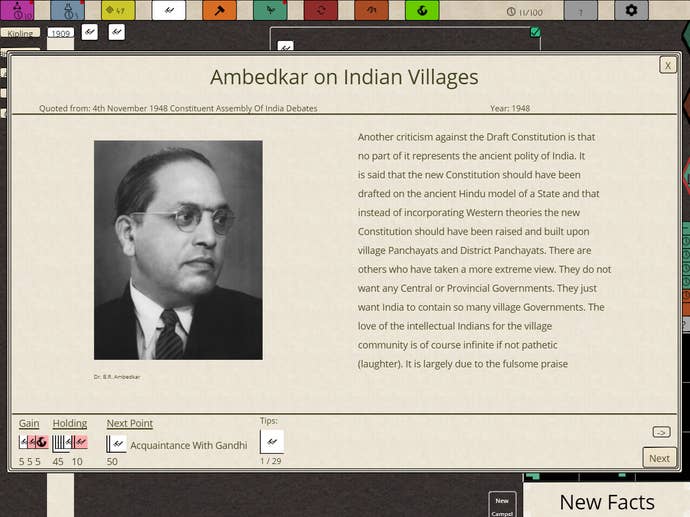
You know, that can be a collaborative endeavour.
But a lot of the game is also just being friends with the other people.
It positions you as one of four students who really haven’t interacted that much.
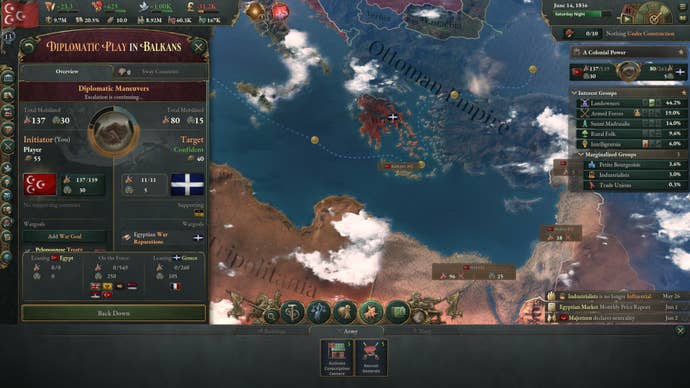
This, to me, is “natural”.
It’s also natural to think about the space race as the US versus Soviet Union.
One must win, right?

That’s not what I want as an individual.
So yeah, there’s this friction there between those two different things that the game is doing.
So I think you’re right, there is definitely a lot of space there to continue to explore.

Nikhil - what would you say has most influenced Syphilisation besides Civ?
Where have you pulled ideas from?
Because it’s already probably too much for a lot of players.
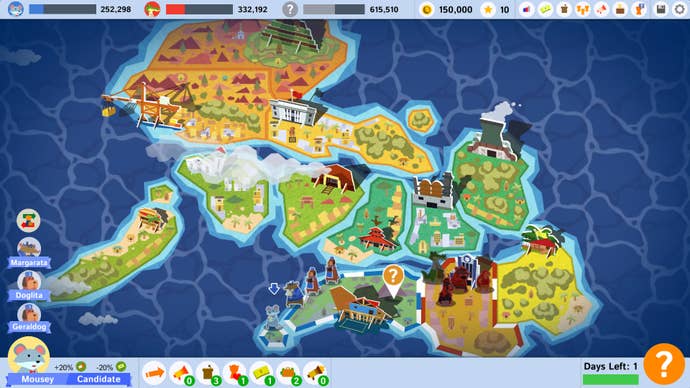
But yeah, I stole a lot from a lot of places.
I stole from Old World, I stole from Humankind.
Because something I’m often asked about Civilization is whether Civilization is an educational game.
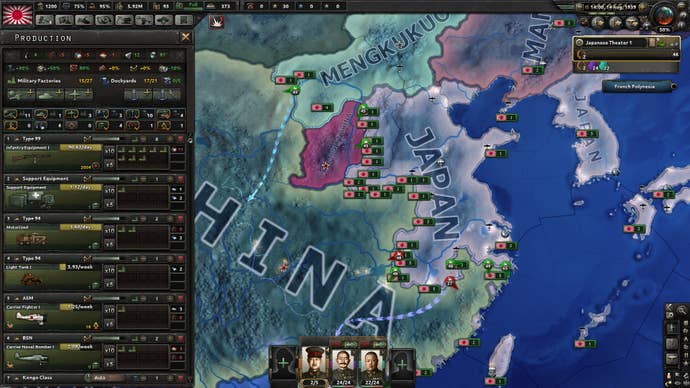
And the fact that it ties in with history is important.
It’s part of providing that story for players.
But ultimately, like, the goal is you want to make the game as fun as possible.

So how are you thinking about that tension?
Nikhil: I feel like there are a lot of ways to define it.
Because it just feels different if you’re shooting mindworms or whatever, right?

Here’s all of the space left in this genre that he’s just not thinking about.
I think that can be fun for players.
I mean, we all know that players love backseat design!
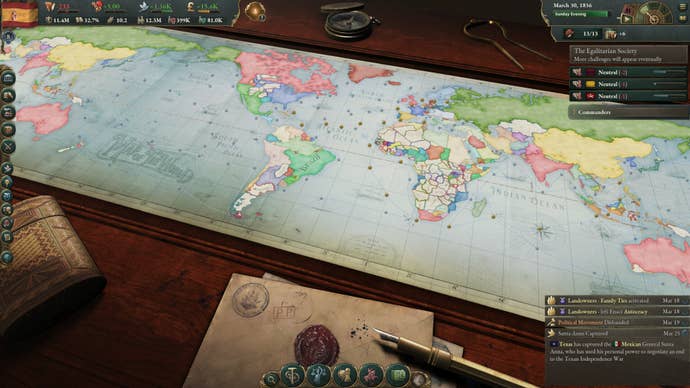
Ryan, do you have any thoughts to share on that front?
Ryan: I mean, I think we still share that weakness.
I don’t think that any game has really cracked that.
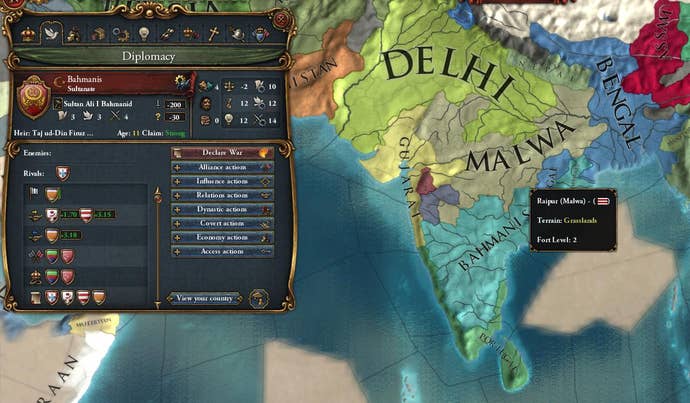
You give something, I get something in return.
And I don’t think any of our games have done that very well, or any Civilization games.
So that’s, I think, a code that’s yet to be cracked.
In some cases, we get around that because we do have the multiplayer aspect for Paradox games.
But the funny thing is you need actual, real people there to have that experience.
Jon: This is a really interesting topic.
And it’s something I’ve been thinking about more lately.
So many games, including strategy games, are about competition and conflict.
And it’s obvious why those things are fun.
And we didn’t have, you know, stable food supplies.
And as we learned as people to cooperate more, that ended up helping people in really enormous ways.
And I find it really interesting that it is such a difficult challenge to capture that in the game.
This is a space that can be explored, if you put in the effort to crack the code.
When we intellectualise it, we think it out, we kind of understand it.
This is what you want from a design space, right?
You don’t want the pat answer: ‘yes, I must always cooperate all the time’.
Jon: How much are you trying to dig into that with Syphilisation?
Nikhil: The weird thing is that’s what I thought would be the toughest nut to crack.
And that’s the one that came together for me, just like that.
The place where I see it the most is just in [saving labour].
Let somebody else do some of the work on his report, right?
And this makes sense, because if you look at Civilization, a lot of people do this.
Ryan: In some cases, maybe despite themselves, Paradox games are exploring that space.
It’s not so much about expanding your nation.
Right now, each game is trying to sort of find its own personality in that space.
So a very cool example is Hearts of Iron.
And so it’s a World War II game.
And that’s just a wargame through and through, it’s about moving your units around.
It’s about logistics and all of these things.
And CK3 is starting to become more of a roleplaying kind of a game.
Nikhil: I’m actually gonna push back a little bit there.
Because all of our history games are like alternate history games, right?
I don’t have an answer to the question of what if the Indian independence movement was more violent?
What if Jinnah had taken over the ANC leadership in the 1920s?
I just don’t have answers for this.
I read Guns, Germs and Steel by Jared Diamond a while ago.
They had better guns than the British Raj, and they had better germs than the British Raj.
There was unquestionably more disease in Mysore state!
Jon: Yeah, I think that’s totally fair.
And that allows you to take advantage of different mechanics and to explore new ideas.
I think it would be really hard to figure out what to do there.
You have a lot of freedom to explore things in a new and interesting way.
Like yes, you’re making Civilization, so you do have to end up being America.
That’s just the nature of the material conditions of making a game like Civilization, right?
Ryan: I think as you said, Jon, it’s kind of pop culture in a way.
Why isn’t this happening?
So just kind of reinforcing what Jon was saying earlier, player expectations do limit you a lot.
But it depends on who you are.
What I cared about was, how do we free ourselves from the Spanish yoke?
And I did it.
And it was a bit too easy.
And we didn’t do anything, but we won our independence.
And at the end of it, I would say it’s not satisfying!
I wanted to bleed for my independence.
I didn’t want it to happen this way.
The invasion of England by the Normans, or the American Civil War and World War 1 or whatever.
These are big picture history things.
Jon: Yeah, the map is a really fundamental element of these games.
So I recently went back and played Civilization 1 again.
And, yeah, that DNA is still so fundamental to what’s in Civilization.
There’s a lot of potential there.
So it’s something that I really hope that we see more people exploring.
I think what Nikhil is doing is really exciting.
Ryan: We were talking earlier about cooperation.
But I was thinking about Pan-Asianism and how it fits into that timeframe.
Estimates of how many died, of course, vary greatly depending on who gets to do them.
But the brigade that did it were not white troops.
He viewed the people he shot as an entirely separate group of people.
Who are we and what are we fighting for?
And those are things we’re still dealing with.
Nikhil: Everyone’s always negotiating - like, not all of India speaks Hindi.
It’s the same in the Philippines, right?
There are people who have a different language, a different culture.
That’s something that’s really hard to represent.
With Victoria 3, I played Sweden in my last game, and you set up colonies in Africa.
That’s not how the relationship worked.
But it is very tempting with such games to just abstract everybody into the same person, right?
Ryan: I don’t think it’s tempting, it’s just like, the laws of physics.
it’s possible for you to’t really break down every individual in the simulation.
We have to abstract it because there’s no other way around.
Because I think we get too caught up in the idea of a simulation.
Edwin: Jon, Nikhil, Ryan - thank you so much for your time.